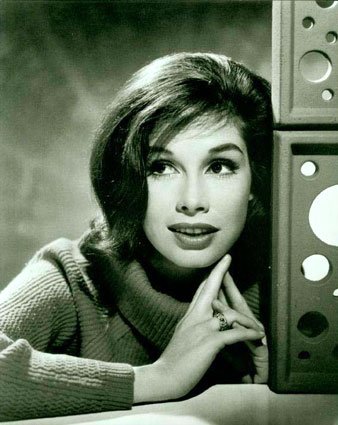By Elizabeth Smislova

Mary Tyler Moore made waves being the first woman to don pants on television. (Mary Tyler Moore/Flickr)
As women flood the streets throughout the country in protests, and once taboo words referring to female body parts become outcries against the patriarchy, the simple act of consistently wearing trousers on television does not seem so revolutionary. In 1970, however, it really was. “The Mary Tyler Moore Show,” whose leading woman, Mary Tyler Moore, died on Jan. 25 after struggling with diabetes, was a breath of fresh and female-focused air during the beginning women’s rights movement.
It was the first “working-woman sitcom,” which featured a single woman, neither divorced nor widowed, with a powerful job and who was not looking for a man or any male financial assistance. It was also the first show to overtly call a man gay and talk about birth control. Keishin Armstrong, author of a book about “The Mary Tyler Moore Show,” called the show “TV’s first truly female-dominated sitcom” that had powerful off-screen effects of empowering women. Even the amount of female writers for the show set records—everything about it was rebellious and electrifying.
The implication that a female-dominated show is feminist takes on new meanings when considered in light of many popular television shows today. Every Monday night in January until March, girls crowd in living rooms with their white wine and blankets to see who will get the rose on “The Bachelor,” an incredibly popular reality television dating show whose finale attracted almost 10 million viewers last year. The premise involves one bachelor who chooses a wife out of about 25 women through weekly eliminations. The female contestants vie for the bachelor’s affection, enticing millions of viewers with their schemes and relationships with the one man.
Brenna Gordon, FCRH ’18, said, “Though ‘The Bachelor’ is very entertaining and woman dominated, that it is definitely not in line with feminist morals. The show just emphasizes the stereotype that a woman is constantly waiting to be picked up by a man.” Victoria Bryan, GSB ’18, also said, “I don’t think it is feminist and I tend to watch it just because I like the show and think it’s funny, even though it is a pretty stupid show.”
Shows like “The Bachelor” stand in complete opposition to that of the late Mary Tyler Moore. The latter television show was revolutionary by veering away from the traditional plot of a female lead whose main objective is to find love—the former takes that conventional storyline women have been trying to dispel themselves from and carries it to the extreme.
Drewy DiSalvo, FCRH ’18, said, “Both ‘The Bachelor’ and ‘The Real Housewives’ are opponents to any feminist cause. Feminism to me means standing with women for the human rights they deserve. When women are pitted against each other on the stated shows, it doesn’t help us progress in any fashion, particularly with ‘The Bachelor.’ It is gender-biased and feminist-free: women fighting against each other for a shot at winning over a single man. That is the definition of patriarchy and blocks any movement for feminism.”
Even though both shows have a female majority in their actors and contestants, they are vastly different on the scale of feminism. The more women in and behind a show in the 1970s meant there would be themes driven by women for women. Today, this is not necessarily the case. Other modern-day shows besides “The Bachelor” include “Real Housewives,” “Keeping Up with The Kardashians” and “America’s Next Top Model” also have a female majority, but are not necessarily feminist.
Noah Stiles, FCRH ’18, said, “I don’t think a show having more women automatically makes it more feminist because it can still be degrading and perpetuate stereotypes. I think ‘America’s Next Top Model’ is feminist because it focuses on the beauty and strength of women and how they can break the glass ceiling of their profession. The show focuses on success and talent rather than on looks. However, the modeling industry itself is not very feminist because they have unrealistic body standards.”
Cathryn Callaghan, GSB ’18, a viewer of “The Bachelor,” said the show “has some aspects that aren’t feminist, like the fact that it might make women feel like they should have to compete with other women for a man. Same goes for the men competing for the woman in ‘The Bachelorette.’ However, I don’t think the show has bad intentions and it’s super entertaining so I watch it anyways.”
The type of television the public finds entertaining may or may not have changed within the past 50 years; maybe fans of “The Mary Tyler Moore Show” would have adored “The Bachelor” had it also premiered in 1970. No one knows whether the country will mourn the death of a “Bachelor” star to the extent of the late Mary Tyler Moore. The only things that remain clear are the opposing feelings left after watching these two conflicting shows—one leaves a woman feeling empowered and strong without the help of a man; the other does not. Which will you give the rose to?
